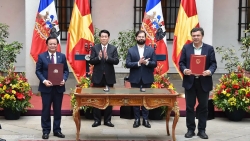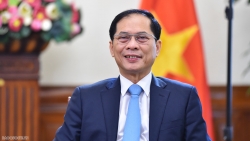
Startups will bring their full capacity to the 'green' table: Danish Ambassador
Latest
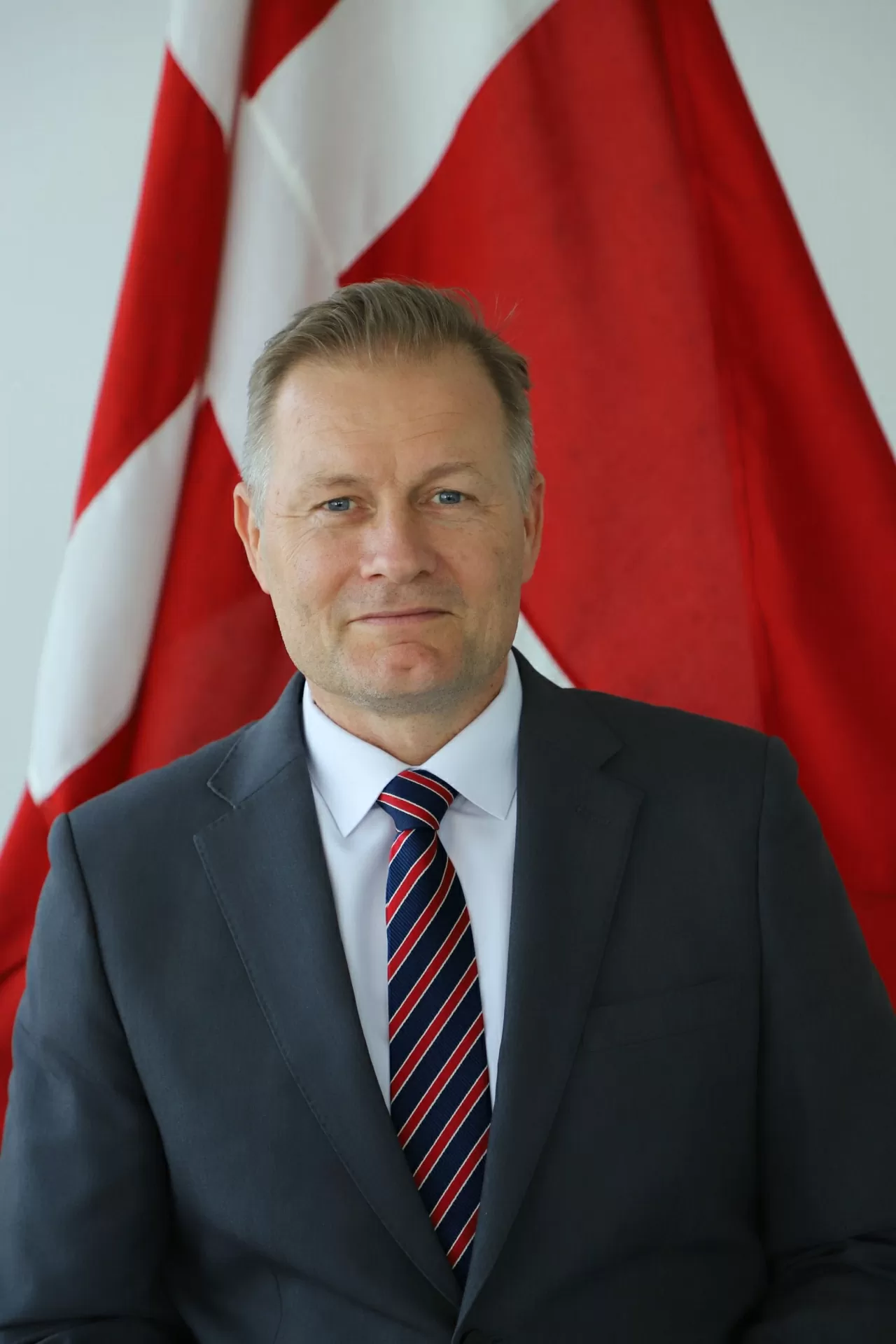 |
| Ambassador Nicolai Prytz believes that sustainable development depends on fostering innovation through collective action. (Source: Embassy of Denmark in Vietnam) |
Danish Ambassador to Vietnam, Nicolai Prytz, gave an interview to the World and Vietnam Report ahead of the fourth Partnership for Green Growth and the Global Goals 2030 (4th P4G) Summit, discussing the path toward a green economy.
"Sustainable and People-Centered Green Transition" is the theme of the 2025 P4G Vietnam Summit, which will take place in Hanoi on April 14-17, 2025. Could you please tell us your opinion about the significance of this theme to the global climate efforts, Ambassador?
This year’s Summit theme is highly important because it recognizes that a successful green transition demands a comprehensive, multi-faceted approach. It is in tone with P4G’s objective which places people at the centre of change, and implies that there is a strong connection between the green transition and climate change.
From a global perspective, this year’s summit comes in a timely manner between COP29 and COP30. COP30 in Belém, coming up this November, marks the tenth anniversary of the Paris Agreement, and coincides with each country’s obligation to submit updated and ambitious Nationally Determined Contributions, providing commitments to accelerate climate action and climate justice. According to the latest International Panel on Climate Change reports, it is clear that we must take action now if we are to prevent climate change from having irreversible consequences for the world and its inhabitants.
At the national level, the consequences of climate change are already evident, also in Vietnam. The impacts of the super-typhoon Yagi and the resulting floods in 2024 caused widespread destructions in the entire country. According to the World Bank, Vietnam is among the most vulnerable countries to climate change. Typhoons, floods, droughts, and landslides often threatens livelihoods, especially in the rural areas. Vietnam also struggles with environmental issues, with, for example, Hanoi being ranked as one of the world’s most air polluted cities in 2025.
Tackling global challenges requires more than business as usual. Achieving sustainable development depends on fostering innovation through collective action. Governments must set ambitious frameworks, businesses should invest in green solutions, and young people and start-ups need to drive fresh ideas. Public-private partnerships play a crucial role, combining the private sector’s resources, innovation, and scalability with the public sector’s regulatory support and funding to address complex challenges more effectively.
To develop the most efficient solutions, we need an inclusive, people-centred approach which ensures that no one is left behind. Inclusive climate action is paramount, not only to tackle climate change but also to reduce socio-economic inequality. Civil society, particularly those most affected by climate change, holds valuable information. Empowering these groups, while considering how overlapping disadvantages – such as gender, race, or socioeconomic status - shape their experiences, is not just about fairness; it also brings about significant social and economic benefits.
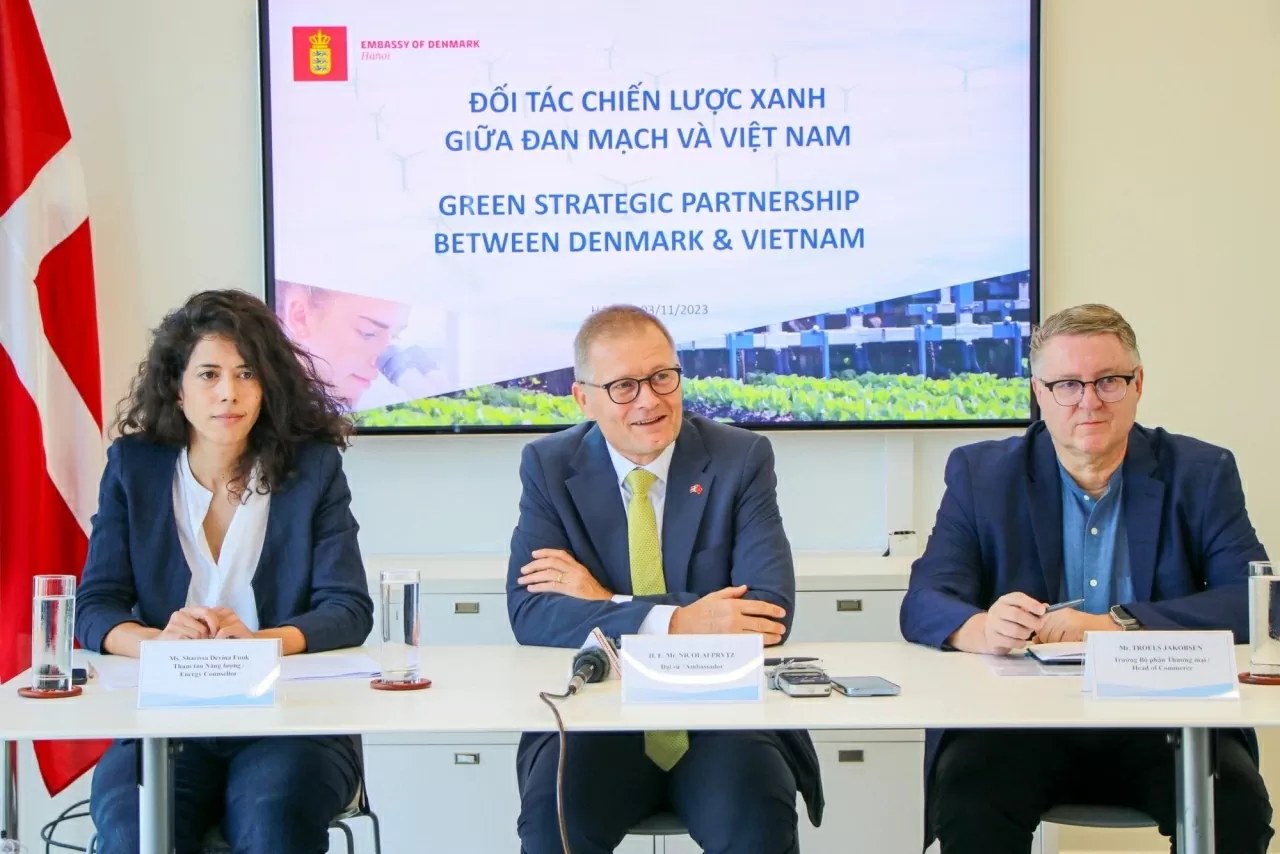 |
| At a press conference in November 2023, Ambassador Nicolai Prytz affirmed that both Vietnam and Denmark share a common goal of building a green future. (Source: Thanh Nien Newspaper) |
Following the principle of Common But Differentiated Responsibilities, all countries are committed to combating climate change but bear different levels of responsibility due to their historical differentiated contributions to the crisis. One key mechanism is climate financing, as seen at COP29, where developed nations pledged to mobilize at least USD 300 billion annually for mitigation and adaptation. While action from historically high emitters is essential, it cannot stand alone - every country, including developing nations, must contribute.
Vietnam has historically been a relatively minor emitter and accounts for only 0.8 % of current global emissions. However, rapid economic growth in recent decades has made Vietnam one of the most greenhouse gas-intensive economies in Southeast Asia when measured by emissions per unit of output. Therefore, it is crucial that countries like Vietnam takes leadership, with initiatives such as the P4G Summit, that contributes to the global climate goals as well as Vietnam’s national ambitious goals of reaching net-zero emissions by 2050.
Denmark has been a global leader in renewable energy and green technology. How do you see Denmark's role and contribution in shaping global green transition efforts, particularly through P4G?
Denmark is already a pioneer in the green transition, particularly within renewable energy, energy distribution and integration, and energy efficiency. Cooperation on energy has formed a significant part of bilateral relations between Vietnam and Denmark since 2013 through the joint Energy Partnership Program. With the purpose to support Vietnam’s transition to a low-carbon economy, Denmark contributes by sharing knowledge, competencies and Danish experiences from our own energy transition.
Denmark, along with the G7, EU and Norway, is also member of the Just Energy Transition Partnership between Vietnam and the International Partners Group (IPG). This initiative has initially pledged a total of 15.5 billion USD, split between public and private funding, to support the decarbonization of Vietnam’s energy system. As part of the Danish contribution as an IPG member, we are also in the process of establishing a government-to-government cooperation in the educational area, focused on vocational training in the area of green transition. It all aligns with Vietnam's goal of achieving net-zero emissions by 2050, ensuring the transition is just, efficient, and environmentally sustainable.
| More from WVR |
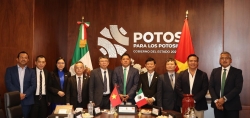 Ambassador Nguyen Van Hai: Vietnamese businesses can learn much from green transition in Mexico Ambassador Nguyen Van Hai: Vietnamese businesses can learn much from green transition in Mexico |
As P4G cofounder and funder, contributing to shaping global green transition efforts is of particular interest to us. Denmark encourages collaboration between countries and sectors across the globe, recognizing that strong partnerships are essential in tackling climate change, ensuring energy security, and other key agendas. Denmark hosted the very first P4G summit in Copenhagen in 2018, helping to raise the visibility of the P4G’s partnership-based approach. Since then, Denmark has supported 14 P4G partnerships by connecting them with Danish stakeholders. These partnerships are aligned with Denmark’s development cooperation priorities to reduce inequality and poverty as well as fighting climate change. Our contributions through P4G supports our broader green transition and climate commitments that make Denmark a frontrunner in the green transition.
Denmark has an ambitious green agenda, which is closely connected to our climate aspirations.
In 2020, we adopted the Climate Act to guarantee Denmark’s commitment to the Paris Agreement. Hereby, the Danish Government is legally obligated to take action and reduce Greenhouse Gas emissions by 70% from the 1990-level by 2030, 110% reduction by 2050, and achieving climate neutrality at 2045. According to the latest reviews by the Climate Council – Denmark’s independent monitoring body – Danish climate policy is on the right track with its commitments in 2025.
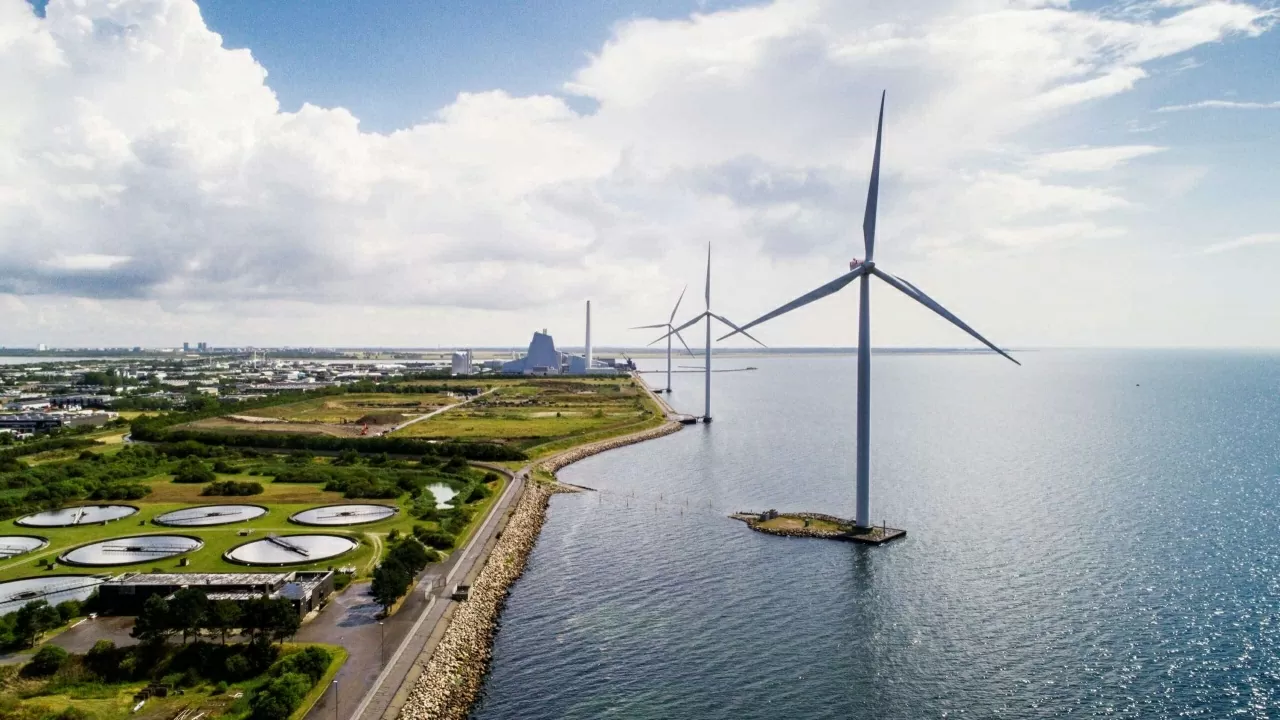 |
| Denmark has long been a frontrunner in the green transition, particularly in areas such as renewable energy, energy distribution and integration, as well as energy efficiency. (Source: State of Green) |
The Climate Act clearly states that Denmark must contribute to inspiring and influencing global efforts to create meaningful impact.
Denmark supports higher commitments from major emitters, resilience for vulnerable nations, and science-based actions. As part of this, Denmark organizes the Copenhagen Climate Ministerial in preparation for the annual COP and global negotiations like the Global Stocktake. Other Danish initiatives include advocating for renewable energy expansion, out-phasing of fossil fuels through alliances like Beyond Oil and Gas Alliance, promoting sustainable practices in shipping and aviation, supporting small island developing states and leading EU climate diplomacy and green strategies – which will also be a focus during the Danish EU presidency during the second half of 2025.
Denmark is committed to shifting global financial flows from fossil fuels to green investments. We have reformed the Investment Fund for Developing Countries, significantly increasing its capital to boost climate financing. At least 30% of Danish official development assistance now targets climate initiatives, and we actively mobilize private investments. Denmark is also engaged in negotiations for a new climate finance goal beyond 2025 and supports reforms to Multilateral Development Banks to help developing countries fund their green transitions. Through international coalitions, we promote carbon pricing and the phase-out of fossil fuel subsidies, strengthening global climate finance for the world’s most vulnerable.
One of the key agenda of the P4G summit this year is showcasing innovations and developing actionable strategies that support and unlock investment for innovation and climate startups in emerging markets and developing economies. Could you please elaborate more on why innovations and climate startups are of enormous importance for achieving our climate goals, Ambassador?
It is becoming increasingly clear that innovations and climate start-ups are crucial to a successful green transition as cross-cutting solutions are needed to overcome the obstacles we face in achieving our climate goals. We need entrepreneurs bringing their full capacity to the table, since these borderless problems require new, innovative solutions. This is a task that micro, small and medium-sized enterprises (SMEs) are particularly well-equipped to solve, because they tend to be more agile and able to quickly respond to new challenges and opportunities in ways that larger firms often cannot.
In Vietnam, SMEs represent 98% of all enterprises and are absolutely critical in promoting green growth and achieving the country’s ambitious climate goals. Similarly, in Denmark, SMEs have been pivotal in driving progress on the green agenda where they make up 98.7% of all enterprises. Therefore, it is essential that the focus of P4G’s Phase 2, running from 2023 to 2027, is placed on fostering partnerships with start-up companies.
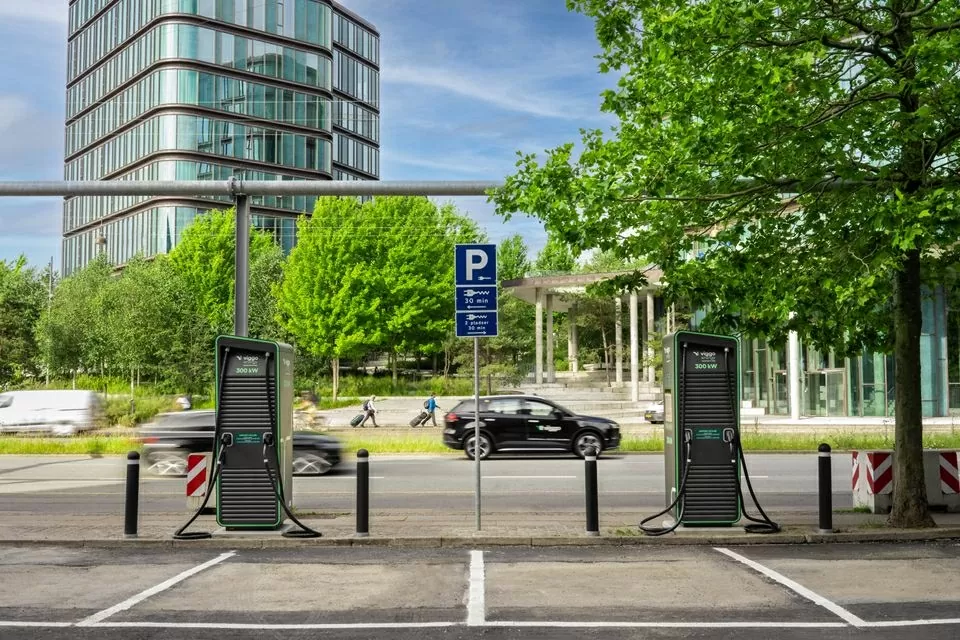 |
| In 2022, mobility tech start-up Viggo launched the first ultra-fast charging hubs in central Copenhagen, marking a significant milestone in the Danish capital’s green journey. (Source: Via Ritzau) |
Climate start-ups are of enormous importance, because they can deliver the right solutions and thereby accelerate the green transition. Technological innovation, new investment models and emerging markets are all expected to shape a future where sustainability is not just an option but a top priority. P4G responds to this need by helping early-stage businesses become investment ready, by providing technical assistance, building communities with authorities, and - most importantly - access to funding which is often the main constraint to growth for smaller businesses.
P4G provides grants averaging USD 350,000 to partnerships and has leveraged about USD 100 million in investments across 19 climate businesses to date. An example is Green Freight Asia Vietnam where P4G has invested USD 100,000 in an incentive-led model to significantly reduce carbon emissions and pollutants from Vietnam’s freight industry by 2050.
As we transition to a green economy, there is a growing recognition that trade activities, environmental protection and sustainable development are inseparable. In this context, P4G plays a vital role in promoting green and inclusive growth, serving as an inspiration for similar initiatives worldwide. With the global economy moving toward a greener, more circular and more innovative future, fostering opportunities for start-ups is essential. Rapid advancements in science, technology, and innovation are shaping new solutions to global challenges. Therefore, harnessing the potential of green start-ups is crucial to achieving our ambitious climate goals.
Thank you Ambassador!
| The Partnership for Green Growth and the Global Goals 2030 (P4G) Summit was established in 2017 as an initiative of the Danish Government, building on the foundation of the Global Green Growth Forum (3GF). Currently, P4G has 9 member countries: Denmark, Vietnam, Republic of Korea, Ethiopia, Kenya, Colombia, the Netherlands, Indonesia, and South Africa. P4G is regarded as the world’s leading forum for promoting public-private partnerships, connecting governments, businesses, and socio-political organizations to co-develop breakthrough solutions for green growth and contribute to the achievement of the 2030 Sustainable Development Goals (SDGs). P4G supports its partner countries primarily through public-private partnerships, offering financial and technical assistance to micro and small enterprises implementing climate change adaptation initiatives. |




